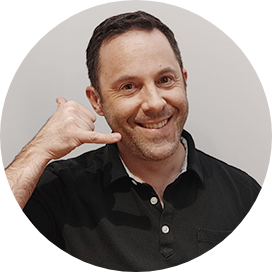1 billion people, or 15% of the world’s population, have a disability. In Canada, 1 in 5 (or 6.2 million) aged 15 years and over have one or more disabilities. An estimated 4 in 10 Canadians with disabilities have a severe or very severe disability. An estimated 59% of working-age adults with disabilities are employed – this does not decipher between those who are underemployed. October represented “national disability employment awareness month“, and many organizations launched initiatives including lunch n’ learns, bringing in a speaker, screening a documentary profiling people with disabilities such as “Born for Business” (view the trailer below), sharing important content, partnering with an ERG, and supporting a disability charity. Awareness is a good thing and is the starting point to drive change.
ScaleHR Founder & Principal, Jeff Waldman, was born with a severe hearing disability in both ears. He relies on the use of hearing aids, speech reading (i.e. lip reading), non-verbal cues such as body language, and technology to get through daily activities. If you ask Jeff to describe the degree of his hearing loss, he’ll simply say, “my hearing sucks, and in my left ear, it’s almost gone”. It’s been a long journey for Jeff; from struggling in high school with speech and verbal communication to university (Sauder School of Business at UBC in Vancouver) and dealing with unaccommodating professors and archaic institutional systems, and the professional working world dealing with workplace discrimination. The interesting thing about all of these challenges and experiences, says Jeff, is that they shaped and moulded who he is today, and that is true for many people with disabilities. People with disabilities are tasked with trying to succeed in a world that doesn’t naturally support them — whether it is those who are hard of hearing, rely on the use of a wheelchair, are visually impaired, or the many other disabilities. Achieving success in this often-challenging world requires people with disabilities to develop unique skills and abilities; creatively making up for their deficiencies in order to realize success.
Learn how to implement employee well-being into your total rewards with our free guide.
Translating to the world of work
What does all of this mean? Currently, the world is extremely disruptive, volatile and in a constant state of rapid change. This likely won’t change for the unforeseeable future. Organizations across the globe are struggling to attract and retain top talent. They cite talent shortages in many high-demand jobs, yet we have more vacant jobs than ever before. There are many reasons for this gap – skills imbalance, poor recruiting efforts, demand outweighing supply, and more. The first key takeaway is that organizations need to start making a real concerted effort to recruit people with disabilities. People with disabilities have been forced to develop unique and rare skills and characteristics that organizations need today — courage, creativity, drive, results orientation, adaptability, technological savvy, perseverance, strategic thinking, problem-solving and diverse thinking. This massive talent pool experiences higher than normal unemployment and underemployment, so the talent is there for organizations to attract.
The second key takeaway is the proliferation of technology, specifically accessible technology. Technology has levelled the playing field between people with disabilities who rely on the use of assistive and accessible technologies and those who do not. Using ScaleHR Founder, Jeff, as an example. Jeff can now leverage closed captioning and transcription on all video calls, which will allow him to fill in the gaps of not hearing someone speak. 10+ years ago, the traditional setting of a workplace meeting was in-person in a meeting room. Closed caption was unavailable in this setting and Jeff relied heavily on speech reading if he was able to clearly see the speaker. However, even if everything was perfect in the traditional setting, Jeff may still have missed out on invaluable information. Having access to the combination of auditory speech (i.e. hearing someone speak), speech reading, closed caption and transcription has allowed Jeff the level of access to information that those who are not hard of hearing typically have. The proliferation of technology has been absolutely fantastic for many people with disabilities.
Conclusion
It’s really important that people understand how big the population of people with disabilities is, globally. Further, with all of the difficulties organizations are currently experiencing in attracting, engaging and retaining top talent, it’s time they put their money where their mouths are and start really tapping into this massive talent pool. The unique skills that have been learned and cultivated over time by people with disabilities can be leveraged by organizations as a major competitive advantage. And finally, accommodating people with disabilities is not hard or expensive. All you have to do is ask – ask what someone needs to be successful and they will tell you. You owe it to your organizations to tap into the 1 billion.
For more information on how you can up your game to attract, engage and retain people with disabilities, let us know. — click here.









